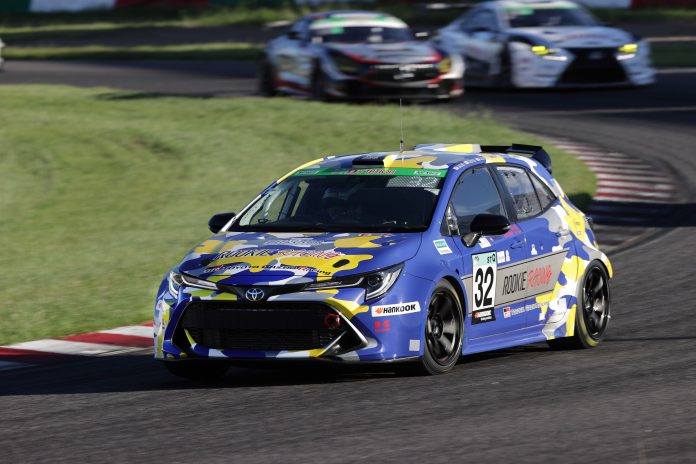
Michelle Slater
Hydrogen produced at the Latrobe Valley HESC trial plant has successfully been used to power a developmental Toyota Corolla in an endurance race series in Japan.
The hydrogen was flown to Japan especially for the race working with project partners Kawasaki Heavy Industries, Iwatani Corporation and J-Power.
The batch was sent off ahead of the official supply chain trial expected to start next year, which involves shipping the hydrogen out of the Port of Hastings to Japan by sea on the Susio Frontier.
Once in Japan, the Aussie hydrogen was then transported to the race circuit by a small fuel cell electric truck.
J-Power non-executive director Jeremy Stone said it was “fantastic” to collaborate with HESC project partners and see the “fuel of the future being adopted by global auto businesses such as Toyota”.
“We’re really pleased we can produce Latrobe Valley hydrogen to the highest purity standards, which is required for fuelling racing cars which produce zero emissions,” Mr Stone said.
Toyota used the hydrogen in round five of the 2021 Super Taikyu Series in Japan series, citing improved performance in the five-hour race, on-par with a traditional fossil-fuelled engine.
Toyota has stated it plans to continue working with the HESC project partners for next year’s race.
“In addition, we are considering the use of hydrogen transported by the Suiso Frontier in the Super Taikyu race in 2022,” Toyota said in a press statement.
“In mid-2025, Toyota plans to use hydrogen transported by a large liquefied hydrogen carrier to continue our efforts to help realize a hydrogen society.”
Toyota will continue to accelerate developing hydrogen engines for “the harsh environment of motorsports”.
Japan plans to transport 225,000 tons of hydrogen from Australia in a full-scale commercial supply chain by 2030.
The nation is expected to be using about three million tons of hydrogen by the end of the decade, and about 20 million tons in 2050, procured both domestically and internationally.











